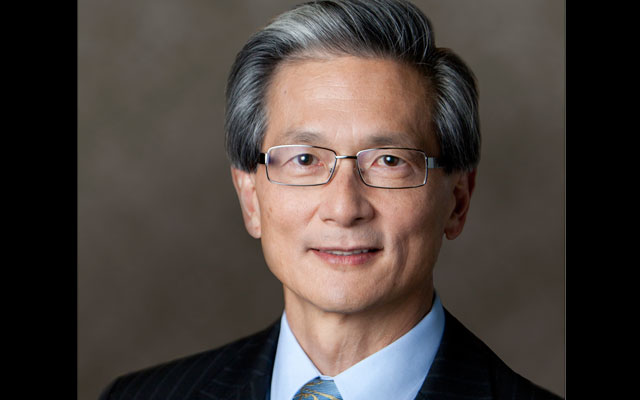
It’s not a long shot to expect a doubling of the Worldhotels portfolio in the next few years, without tradeoffs to its independent hotels-centric identity, Best Western CEO David Kong said following an acquisition of the company.
The US hotel chain giant last week bought over WorldHotels for an undisclosed sum, and the two are now part of a newly established parent company, BWH Hotel Group. WorldHotels properties will be positioned in the upper upscale end of the group, while Best Western will occupy the midscale.

Combined resources under BWH Hotel Group
An alliance between the two companies was in talks three years ago, when “Worldhotels recognised that loyalty programmes is going to become more important and want to have access to that and our customer base”.
While an alliance did not pan out, what the two now have is “better than an alliance”, Kong remarked. “Now, we’re under one company, BWH Hotel Group. It’d be much easier for us to leverage the talent that work for both companies. There is so much knowhow and experience within the Worldhotels team here.”
Unlike some of the bigger mergers in the hospitality industry in recent times, Kong stressed that integration of the two companies is “not about streamlining the staffing, but about cross-pollinating ideas and leveraging talent”.
Kong added that Worldhotels brings value in the form of good sales relationships with corporate buyers and travel agents, on top of a relevant portfolio of luxury properties.
Perhaps, this is also a sign of Best Western’s Asian ambitions.
Roland Jegge, Asia-Pacific president, Worldhotels, pointed out that the company brings to the table a sizeable Asian presence as Best Western looks to increase its regional footprint – both in terms of hotels and sales offices. Some 80 out of Worldhotels’ global portfolio of over 300 hotels are in Asia, while Best Western has about 50 locations in the region.
A better proposition to agents, corporate buyers
While the merger brings together distinct midscale and upscale brands, there will be “no dilution, but synergy and added value”, Kong stated.
“Big companies have different travellers with different needs. Executives can stay at (more upscale) Worldhotels properties, but there could also be a lot of (travellers who would stay) at a Best Western. Bringing all those options and solutions to companies can make us more desirable as a one-stop shop. To present a travel manager with the ability to make a contract with one company while (taking care of different needs) is a very good selling proposition,” Kong explained.
Although the two will present a combined portfolio in B2B sales, WorldHotels properties will be separated from Best Western’s consumer-facing marketing efforts, allowing WorldHotel properties to retain their identity, Kong shared.
“Additionally, while WorldHotels will be part of our loyalty programme, it will be branded separately as WorldHotels Rewards.”
Under BWH Hotel Group, Worldhotels members will be held to the same criteria and inspection requirements to uphold standards as before, Jegge added. Hotels will continue to fall into a three-tier classification system, with Luxury at the top end, followed by Distinctive and Elite. Hotels will still have to meet independent LRA criteria to be classified in the Luxury tier, Jegge confirmed.
“Worldhotels’ (emphasis on) independence and self-identity is hugely important, so we have to protect that. It’s all about how we can create value for TMC customers and simplify the job of the travel manager. When we provide a whole suite (of distinct brands), that happens,” Kong stresed.
A hunger for soft brands
This is the latest in a string of soft brand activity in the hospitality industry involving companies that were traditionally focused on branded chains.
“The trend is there and the universe is huge for soft brands. Hotels are moving away from long term contracts with big hotel companies,” Kong observed.
Indeed, WorldHotels has seen accelerated expansion particularly in its Asia-Pacific portfolio in the past three years, said Jegge. The demand for a soft brand solution is coming both from owners de-flagging hotels when management contracts come to expiry, as well as from those wanting to independently brand new-builds.
Against this backdrop, synergies between large chains and soft brands are there for the taking, according to Kong.
While owners value their independence and don’t want the onerous branding requirements and exorbitant fees that come with being part of a chain, Kong pointed out that “they also need powerful revenue engines as an alternative to OTAs”.
“If they are independent, most business will come from OTAs – which is problematic. Hotels want to negotiate contracts, but OTAs do so much business that hotels (basically fall to) their mercy and the OTAs dictate the terms. (At the same time), more hotel companies are launching soft brands to attract independent hotels to be part of the revenue system as they need an alternate source of business.”
With its scaleable platform and over 40 million customers, Kong believes Best Western will be able to add to WorldHotels by driving revenue and savings for member hotels, which could contribute to “dramatic growth”.
“I have huge expectations of how much Worldhotels is going to be able to grow. Once hotels see the revenue advantages, more will join. Doubling the (number of member hotels) in the next few years is not far-fetched.”



















